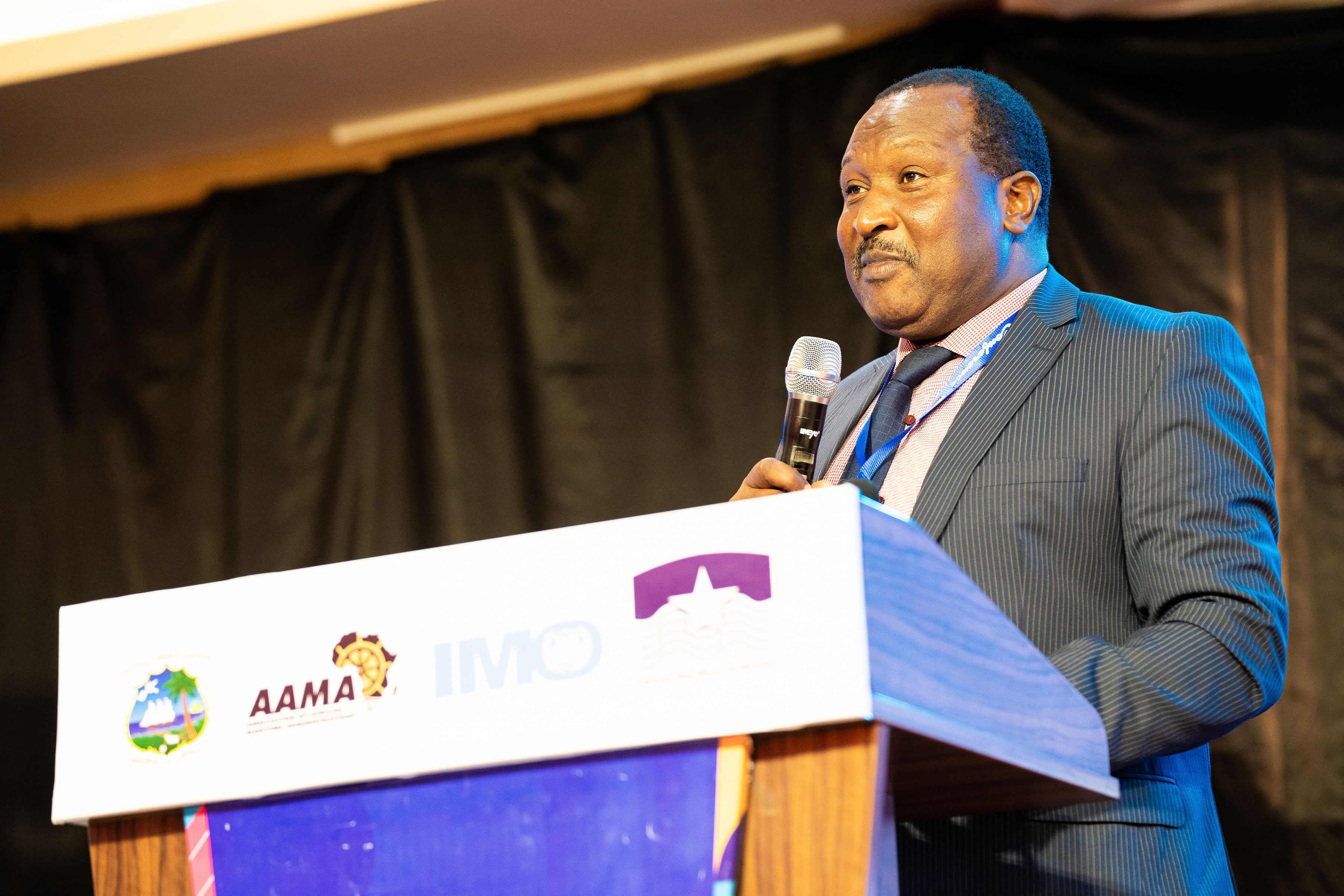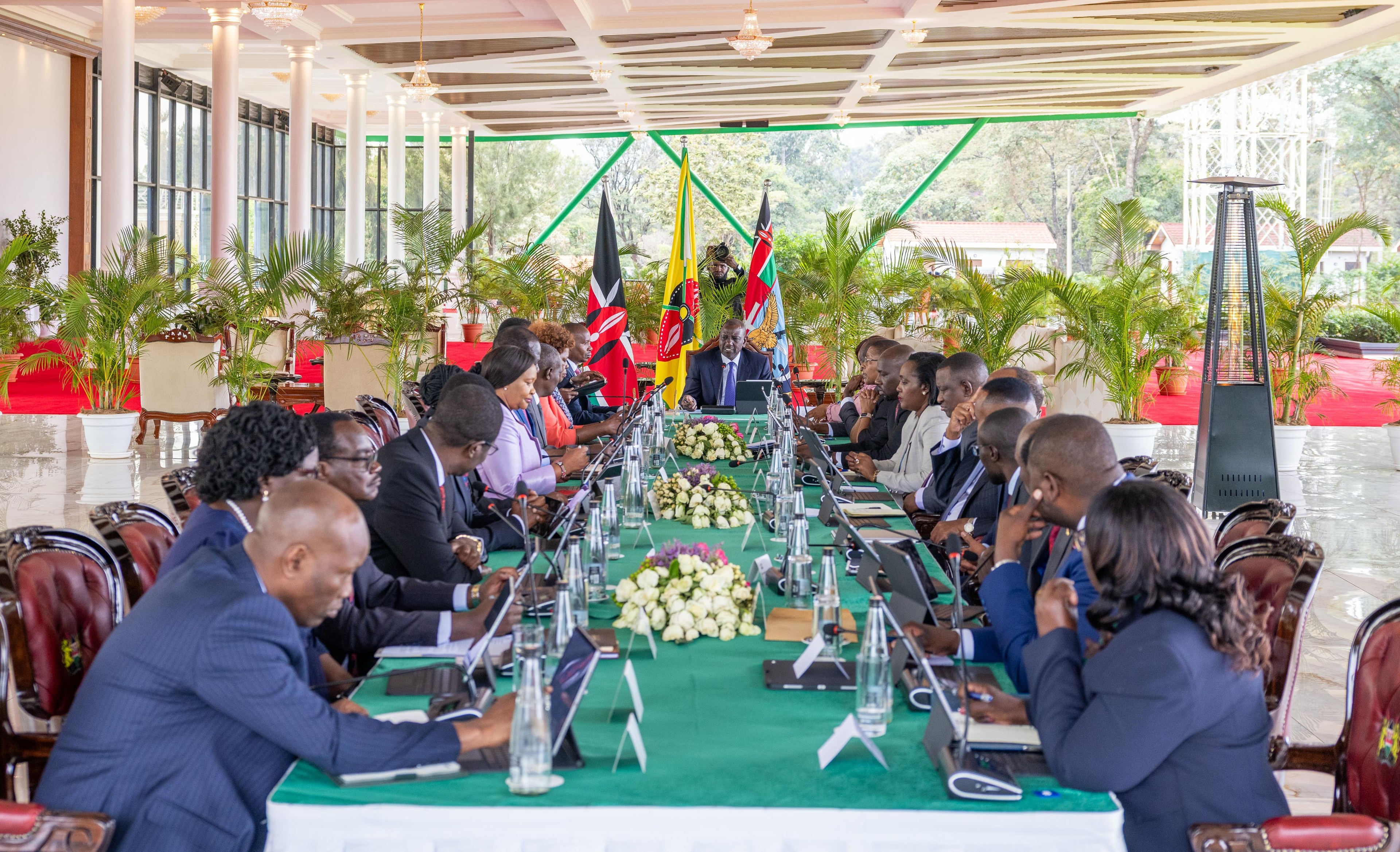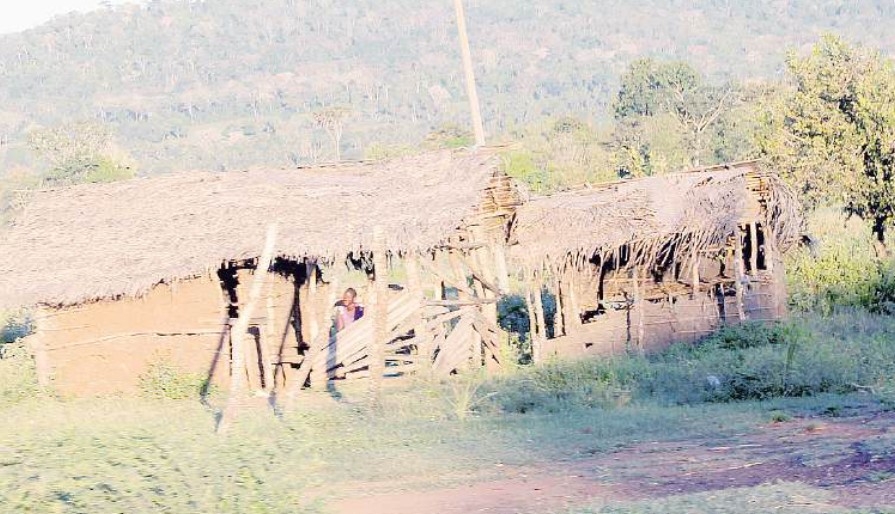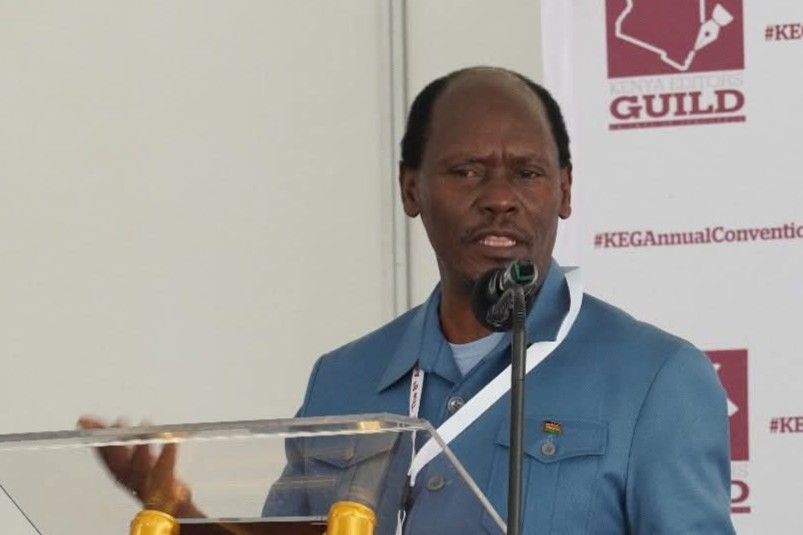
 KMA's director general, Justus Nyarandi and chair of the Association of African Maritime Administrations at the forum in Monrovia, Liberia /HANDOUT
KMA's director general, Justus Nyarandi and chair of the Association of African Maritime Administrations at the forum in Monrovia, Liberia /HANDOUTAfrica’s maritime ambitions continue to face turbulence, with piracy, weak fleet capacity, poor regulatory harmonisation and limited investment in technology standing out as persistent threats to the continent’s blue economy.
During the 8th Association of African Maritime Administrations conference in Monrovia, Liberia, chairman Justus Nyarandi rallied nations to work together towards securing and unlocking the ocean’s economic potential.
Nyarandi, who is also the Kenya Maritime Authority director general, said piracy and unregulated fishing are still a problem on Africa’s waters.
“Piracy may have evolved in form, but it persists. Illegal, Unreported and Unregulated (IUU) fishing continues to plunder our resources. We are yet to run African internal fleets and our seafarers still lack ships for sea time training,” he said.
Nyarandi, who also represented Kenya at the forum, said Africa’s inability to operate its own commercial fleet continues to cost the continent billions annually in freight charges paid to foreign-owned vessels.
“The shortage of locally owned ships also limits opportunities for young seafarers to gain the experience needed for global certification, leaving many trained Africans jobless despite rising demand in the global maritime industry,” he said.
Marine pollution and the climate crisis, he added, have compounded these challenges, threatening coastal livelihoods and diminishing the productivity of marine ecosystems.
“The impacts of climate change are eroding our coastlines and altering our maritime domain,” Nyarandi said, stressing that Africa cannot afford to be passive as environmental and security pressures mount.
To reverse the trend, he called for stronger cooperation among African states and partners, anchored on several key pillars.
The pillars include strengthening maritime governance and security through enhanced domain awareness, joint patrols and information sharing; and investing in capacity building and technology, including digital ports and vessel traffic management systems.
Others are harmonising legal and regulatory frameworks to unlock intra-African trade under the African Continental Free Trade Area (AfCFTA); and championing sustainability by aligning with the International Maritime Organization’s greenhouse gas reduction strategies.
He said Kenya, during its tenure as AAMA chair, has prioritised these pillars and continues to promote collaboration among member states despite limited financial support.
While acknowledging Africa’s progress in maritime administration, including the establishment of the AAMA secretariat, Nyarandi emphasised that the continent must translate conferences into actionable outcomes.
“This conference is not just a meeting; it is a call to action. Let us leave Monrovia with a renewed sense of unity and a clear roadmap that will guide AAMA towards a safer, more secure and more prosperous maritime future,” he said.
The KMA boss urged African nations to harness collective strength to gain a stronger foothold in global maritime business and governance.
The AAMA conference continues to serve as a continental platform for dialogue on maritime safety, decarbonisation and blue economy growth.
Liberia, one of the world’s leading ship registries, is hosting the 2025 edition as part of its long-standing commitment to advancing Africa’s role in global shipping.







![[PHOTOS] Ruto present as NIS boss Noordin Haji's son weds](/_next/image?url=https%3A%2F%2Fcdn.radioafrica.digital%2Fimage%2F2025%2F11%2Ff8833a6a-7b6b-4e15-b378-8624f16917f0.jpg&w=3840&q=100)










